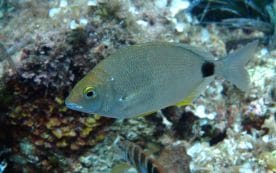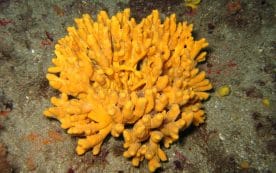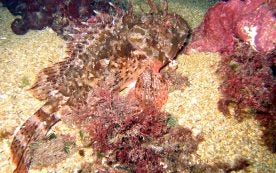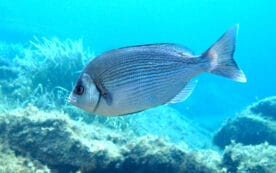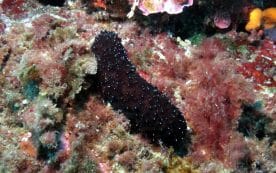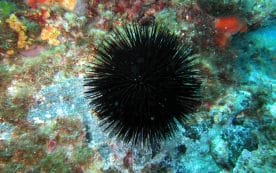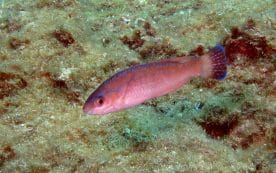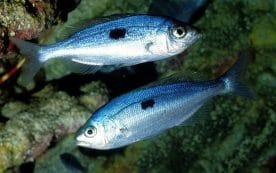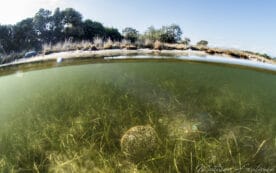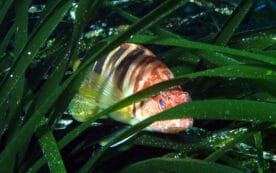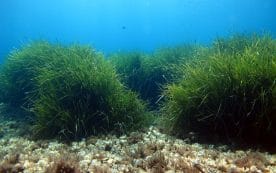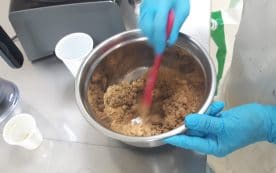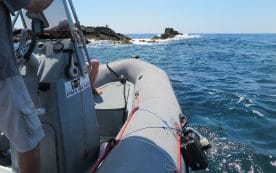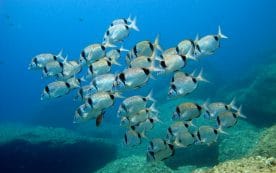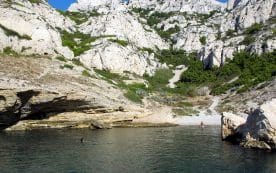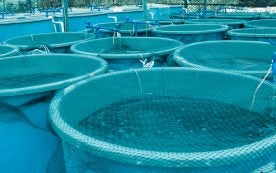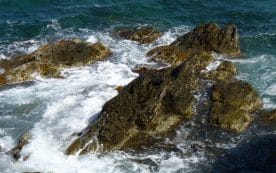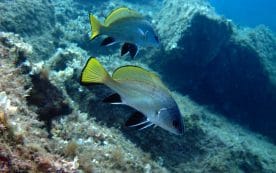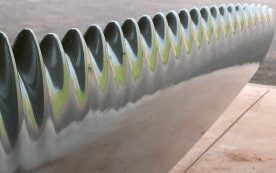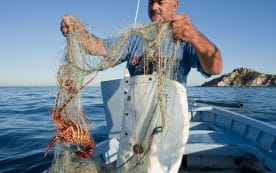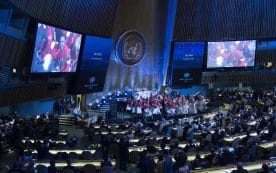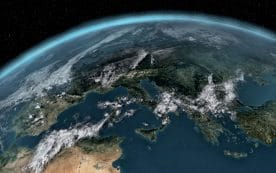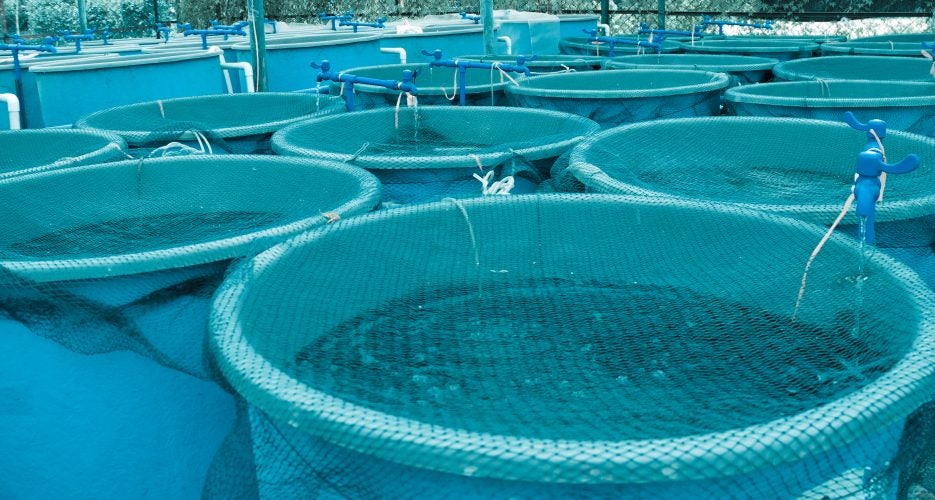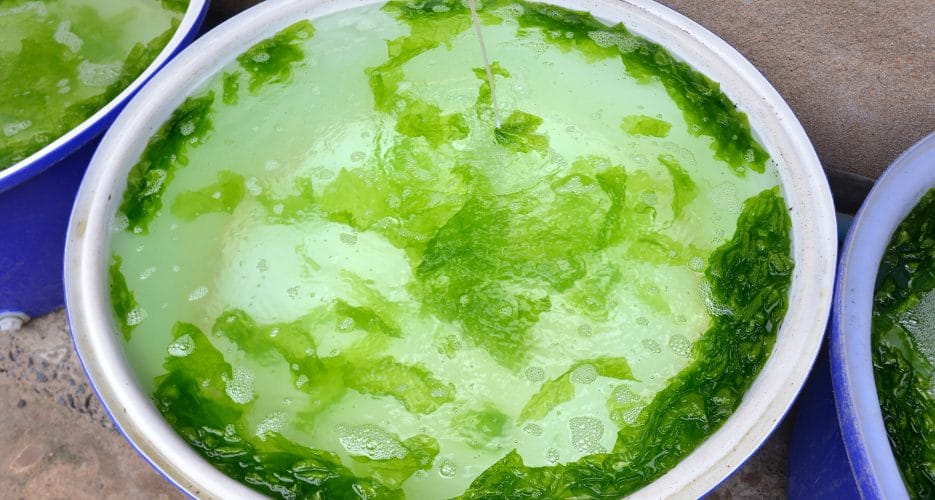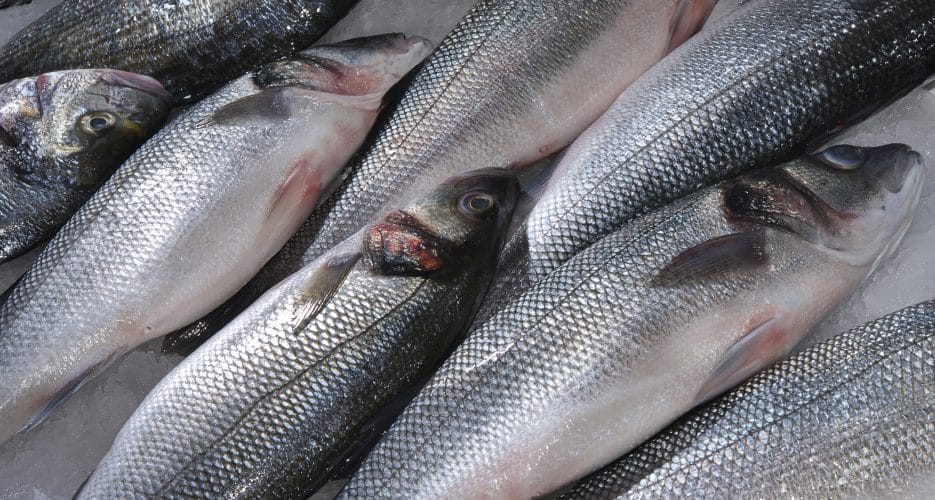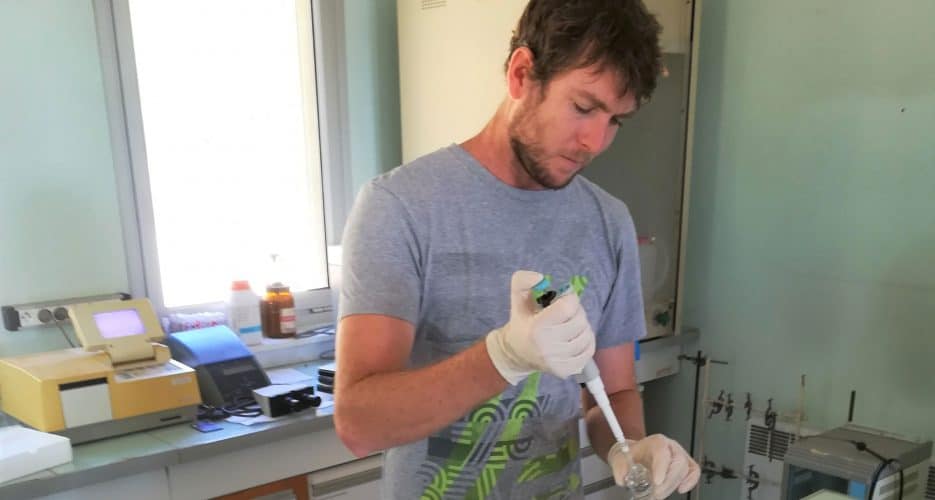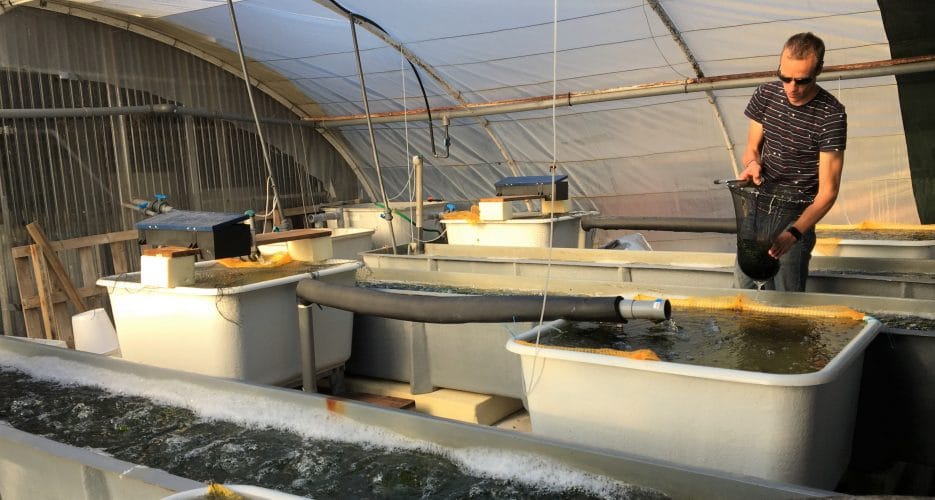Context
Industrial fisheries and rising demand are placing ever-increasing pressure of fish stocks. Aquaculture can be a viable alternative but it typically also consumes fisheries products. To make it more sustainable, we need to diversify the species being farmed and also feed them differently.
Programme
In a food chain, each living being eats the one below it. The combination of all the food chains in a single ecosystem is called a food web, which allows the flow of energy and biomass. At each level, living organisms produce waste that can be consumed by another species. In nature, nothing is lost. The concept of integrated multi-trophic aquaculture (IMTA) is inspired by the trophic dynamics of the natural environment. The idea is to farm fish together with molluscs and/or crustaceans, algae and/or aquatic plants, to improve environmental and economic yield.
Closed loop studies are currently being carried out on land and at sea.
Phase 1
Researchers began by leveraging the Institute’s experience in experimental aquaculture to select compatible Mediterranean species that would be able to recreate a food chain. They selected sea bass, edible sea urchins, sea lettuce, mussels, marine worms and a species of sea snail. The fish produce waste that allows the sea lettuce and worms to grow. The sea urchins eat the sea lettuce, and the mussels and snails filter and clean the water.
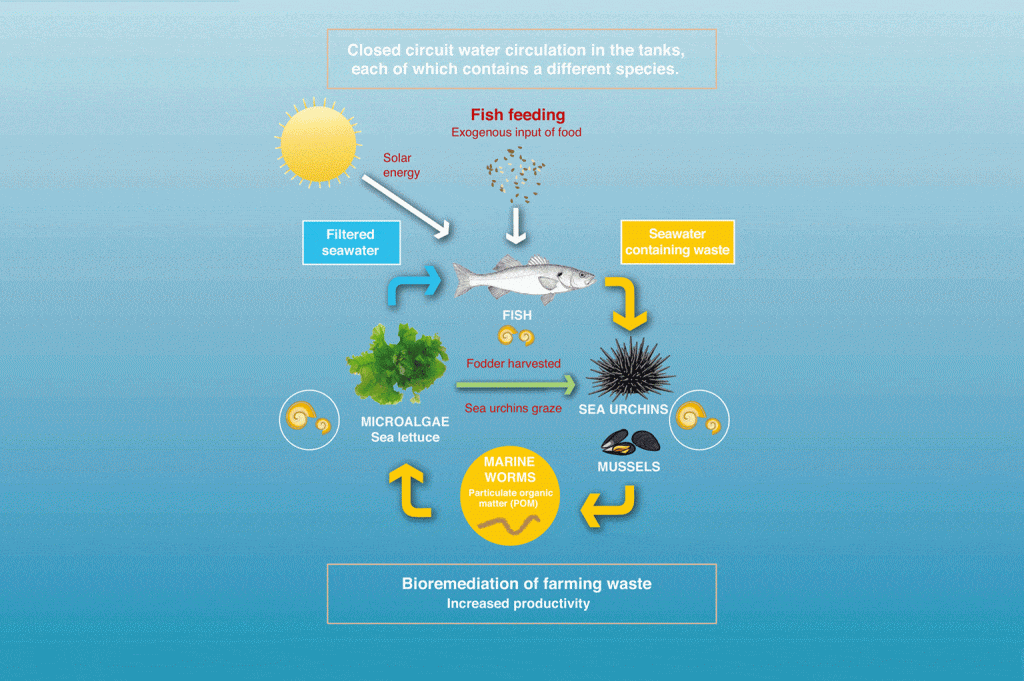
Phase 2
The second phase of the research programme involves calculating the optimal level of nutrient input that allows the system to clean itself naturally. The goal is also to find the ideal balance for a fully autonomous circuit and to optimise physicochemical parameters (dissolved oxygen levels, temperature, salinity etc) to ensure that production is stable and high enough to be profitable.
Last updated on : 30 April 2019
Troell M., Halling C., Neori A., Chopin T., Buschmann A.H., Kautsky N., Yarish C., 2003. Integrated mariculture: Asking the right questions. Aquaculture 226: 69-90.
Huo Y., Wu H., Chai Z., Xu S., Han F., Dong L., He P., 2012. Bioremediation efficiency of Gracilaria verrucosa for an integrated multi-trophic aquaculture system with Pseudosciaena croea in Xiangshan harbor, China. Aquaculture, 326: 99-105.
Montalto V., Martinez M., Rinaldi A., Sarà G., Mirto S., 2016. The effect of the quality of diet on the functional response of Mytilus galloprovincialis (Lamarck, 1819): Implications for integrated mutitrophic aquaculture (IMTA) and marine spatial planning. Aquaculture 468: 371-377.

